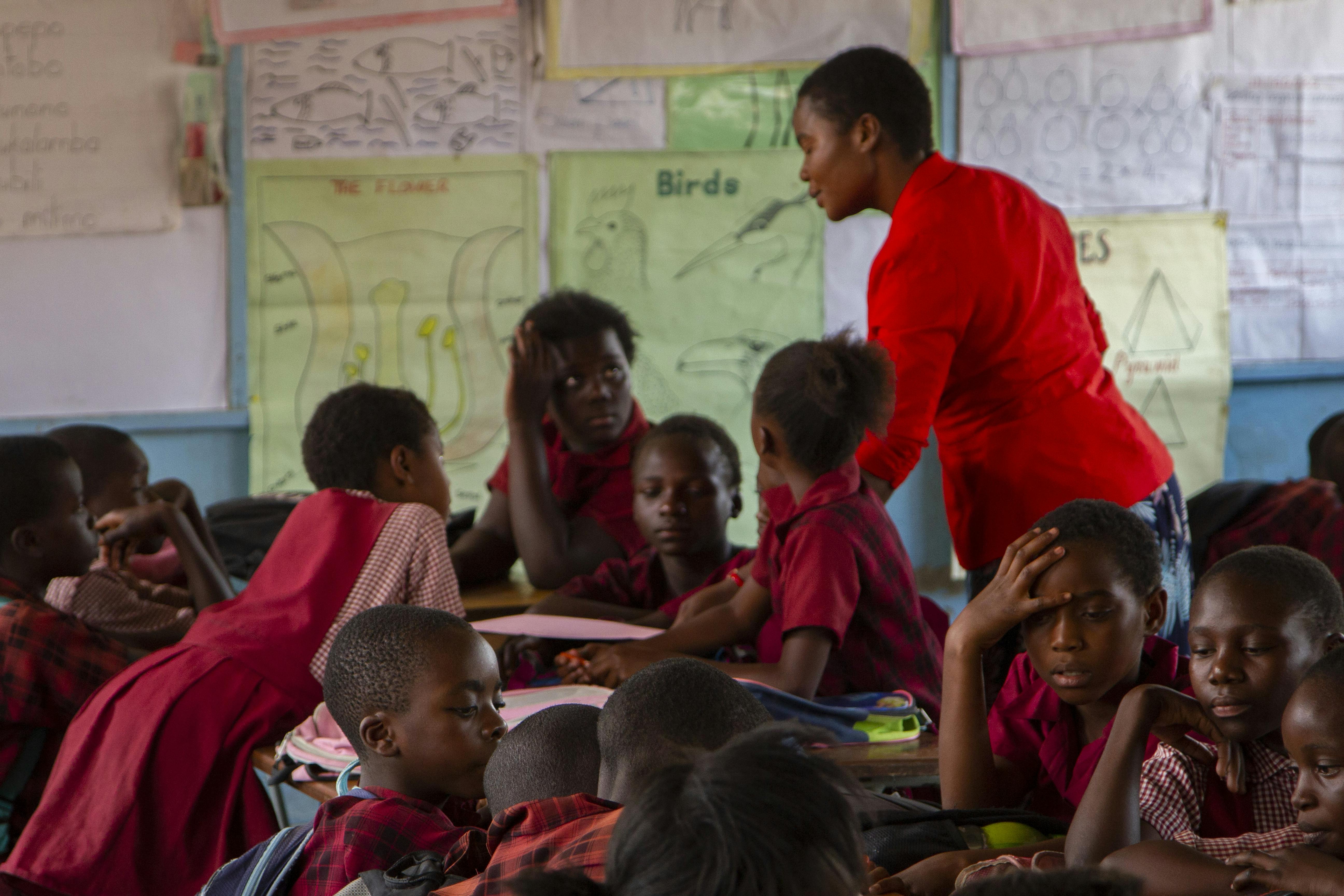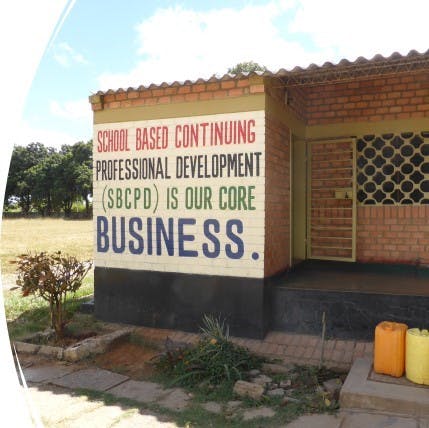Research · Editorial
Widening opportunities for teacher professional development in Zambia using low-cost tech

IET is working with the ZEST project, supporting the use of open educational resources and collaborative digital learning approaches.
In partnership with World Vision Zambia (WVZ), a registered charity that works in all 10 Zambian provinces to deliver projects which improve the life-chances of children, the OU has been implementing the Zambian Education School-based Training (ZEST) project since 2017.
Funded by the Scottish Government and working with the Zambian Ministry of General Education across 5 Districts in Zambia’s Central Province, the ZEST project has co-designed an enhanced School-Based Continual Professional Development (SBCPD) programme to strengthen existing education systems, improve the quality of teaching and learning for primary school children, and help teachers to implement the Zambian Revised School Curriculum. The provision of contextualised resources is a key aspect of the enhanced programme.
Regional challenges to teaching and learning exist in many parts of Zambia, making accessing online resources highly difficult, such as internet access being expensive and network connections being unreliable. The Covid-19 pandemic has only exacerbated these existing challenges, further restricting access to educators, classroom settings and learning resources.
To address these challenges, ZEST has investigated viable technological solutions which can distribute open educational resources to local educators across the region without the use of internet or reliable electricity supply.
Research by the OU’s Institute of Educational Technology has found that in areas where internet access is not available, shared learning opportunities can be increased using offline digital resources and low-cost, battery powered computers such as Raspberry Pis. This approach had been developed and trialled across Europe in a research project in which IET played a leading role.
Dr Mark Gaved, Lecturer at IET, calls this approach to digital education “offline networked learning."
Following a short proof of concept exercise, the ZEST team recognised that the availability of mobile smart phones amongst teachers gave this approach the potential to solve challenges in delivering open educational resources (OERs) and enhancing collaborative digital professional development amongst teachers in Zambian schools; resonating with the project’s ambition for teachers to learn together.
Since 2019, IET has been working with members of the ZEST project from the OU’s Faculty of WELS (Wellbeing, Education and Language Studies) and Faculty of STEM (Science, Technology, Engineering and Maths), and World Vision Zambia, to trial the use of Moodlebox on the Raspberry Pi; a version of the widely used Virtual Learning Environment, Moodle.
Providing users with access to a ‘familiar’ interface, Moodlebox allows resources to be stored and shared, and recognises teachers’ engagement with Continuing Professional Development (CPD).
Discussing the offline networked learning approach, Dr Mark Gaved commented:
“It is key to remember that the technology is not a magic solution. It is an enabler, enhancing the primary focus of the programme: learner-centred education, active teaching and learning, and teacher collaboration.”
“By building on existing capacities and capabilities already in place within the Zambian education system, respecting existing hierarchies and cultures, and using familiar technology and the motivation of teachers, leaders, and officials, we've been able to support the delivery of the enhanced SBCPD programme and the development of digital skills.”
“It's been really encouraging that World Vision Zambia have reported to us that teachers have been asking how they can use Moodlebox and the Pis for their own purposes, beyond what was set up for ZEST. Schools have also been uploading local resources which were not produced by ZEST. This is a sign that schools have seen value in them and hints at the long-term sustainability of the approach.”

How the Raspberry Pi can help teachers develop in Zambia
Raspberry Pis were originally developed by the UK-based Raspberry Pi Foundation to support the teaching of basic computer science in schools and in developing countries.
During the ZEST project, Raspberry Pis have become a key element in a range of tools employed in Zambia for enhancing teacher education. Discussing this further, Rachel Ayeh Hanson, Project Manager for the ZEST Project at The Open University said:
“The Raspberry Pi is small, lightweight, easy to store and transport and generally affordable. The purpose and function of the computer made it an ideal fit for the project. The Raspberry Pi computer acts as a network hub that allows teachers to work together both in and outside of their Teacher Group Meetings, using web-based tools that may be familiar to them as smartphone users without the need to connect to the internet.”
“The introduction of Raspberry Pis has enabled an unexpected opportunity for the development of digital skills, at both school and district levels. This proved to be very timely as Covid-19 hit.”
Alongside the Raspberry Pi activity, with the support of Ministry officials, ZEST put in place local School Champions. Commenting on the role of the School Champion and the next steps for ZEST, Rachel added:
“School Champions play a vital role – by providing tech-minded individuals (usually ICT teachers) with more in-depth training to maintain the computing power of the Pis, this enables them to offer first- and second-line support in schools. This provision aids schools in resolving technological issues independently.”
“Looking to the future, we aim to increase the number of schools using Raspberry Pis from 64 to 420 by the end of 2021. In 2022, we intend to expand our understanding of how technology can support the school-based continual professional development programme.”
By the end of the project, our goal is that schools and districts in Central Province, Zambia can continue with the enhanced SBCPD programme, supported by Raspberry Pis, in their teaching and learning.
To find out more about the ZEST project, click here.
To access the ZEST Open Educational Resources (OERs), click here.
People
-
RH
Rachel Ayeh Hanson
